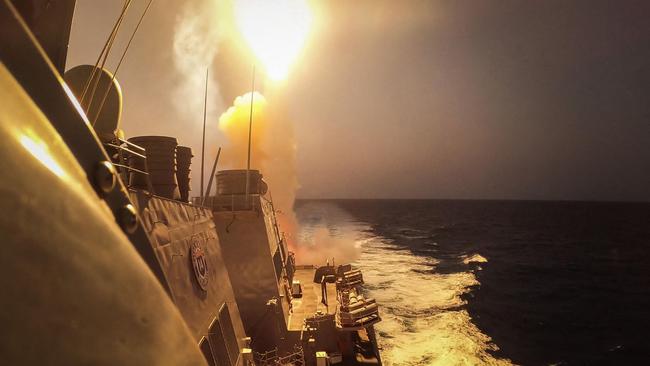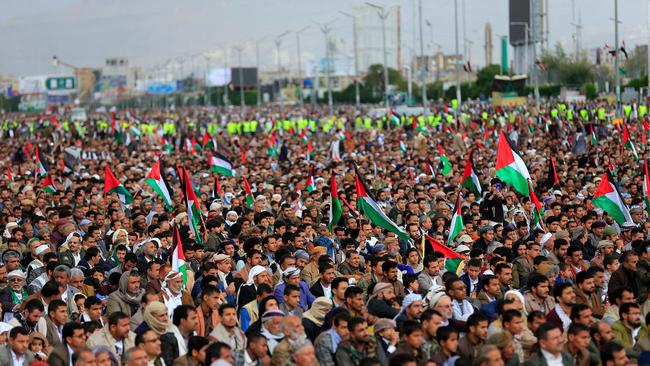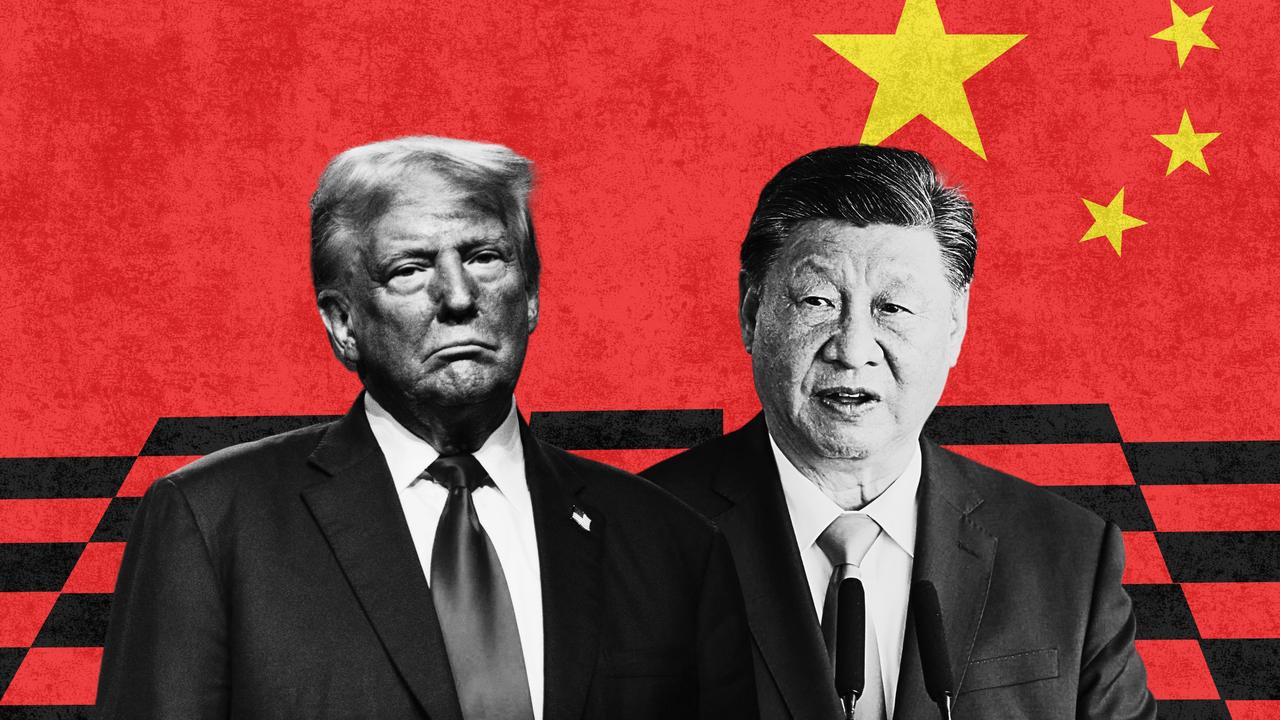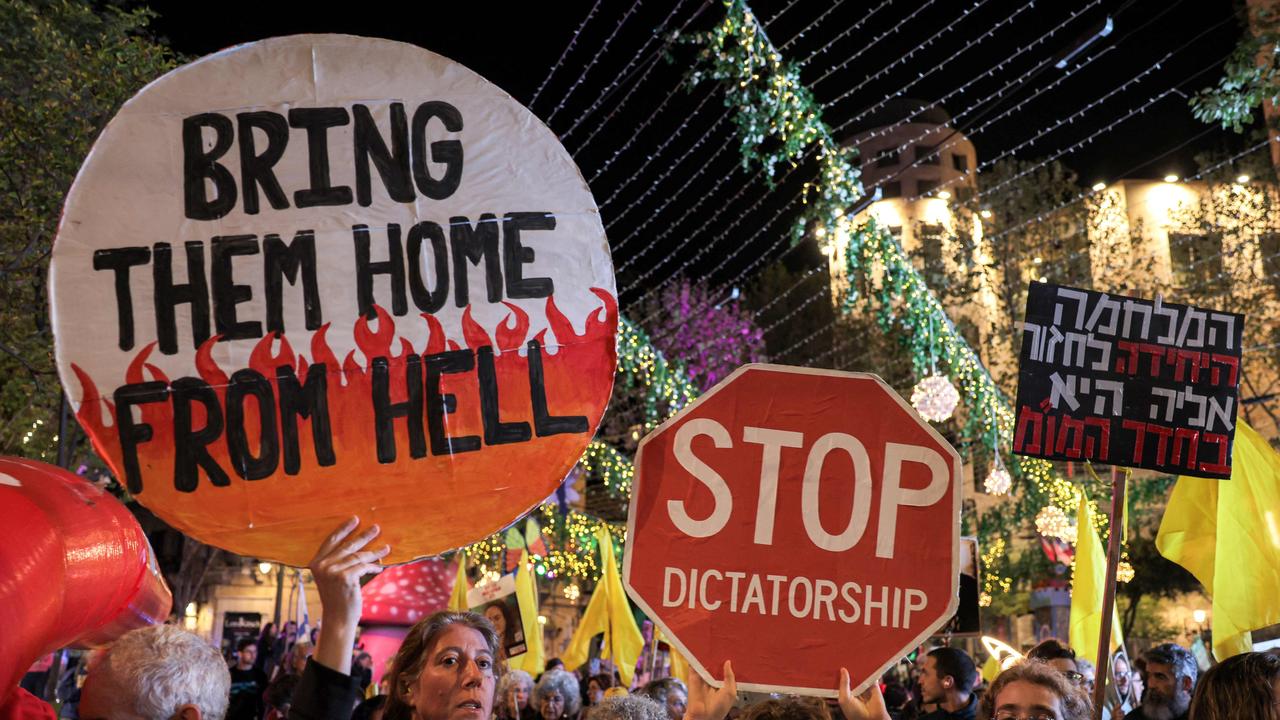Houthi rebel missiles confirm new war front against Israel
Shia ‘resistance movements’ across the Middle East are threatening to join the war in response to the assault on Gaza.

The Iran-backed Houthi rebel movement in Yemen has opened a southern front against Israel, as Shia “resistance movements” across the Middle East threaten to join the war in response to the assault on Gaza.
The group, which has fought a bloody conflict with the Saudi Arabia-backed Yemeni government, issued a statement claiming responsibility for a missile and drone attack intercepted on Tuesday over Eilat, the southern Israeli town on the Red Sea.
It said this was a third attack, confirming suspicions that it had fired missiles previously intercepted over the Red Sea heading in the direction of Israel.
“Our armed forces have launched a large batch of ballistic and cruise missiles and a large number of drones on various Israeli enemy targets in the occupied territories,” the statement said, adding that this was because of the “brutal Israeli-American aggression, and its daily massacres, genocide, mass destruction, and stifling siege”.
The group released a video of what it said were the missile launches, backed by music and warning that “more is to come”.
The leader of Hezbollah, the Lebanese militant group also backed by Iran, will soon give his first speech since the outbreak of the war in Gaza.
Closely followed by his supporters, Hassan Nasrallah is expected to give the first indication of how far the group is prepared to go to broaden the conflict.
Iran has indicated that any attempt by Israel to carry out its threat to eradicate Hamas through a full-scale invasion of Gaza would ignite the region.
Israel fears having to fight on two fronts. It has always argued that a major escalation by Hezbollah would lead to a war with Lebanon, and a mass destruction of Lebanese infrastructure, but it is also aware that Hezbollah’s arsenal of missiles, far superior to that of Hamas, could overwhelm its Iron Dome defence system.

The Houthi movement, once a small insurgent group based in the north of Yemen, triggered civil war in the country in 2014 when it seized the capital Sanaa and marched south. The Saudis and the United Arab Emirates intervened on behalf of the government when the rebels were about to seize the key port of Aden.
It was generally assumed by observers that its ambitions were local, despite a slogan demanding, “Death to America, death to Israel, curses on the Jews”.
Iran has built up the Houthi arsenal to the point that it has been able to strike key targets in Saudi Arabia. Its expanded arsenal has brought Israel into range.
Arms control experts believe that the type of long-range rocket used by the Houthis would not pose a threat to Iron Dome.
Nevertheless, the Israeli navy deployed corvettes to the Red Sea after Tuesday’s strike.
The Houthi movement would on the surface have much to lose by joining a war directly against Israel. Israel’s bombers could inflict huge damage on Houthi and Yemeni infrastructure, which would also bolster Israel’s relationship with Saudi Arabia.
However, a series of pinprick rocket firings would allow Iran to claim it had launched the multi-front war on Israel that it has threatened. That would be the case even if, as some expect, Nasrallah refuses to let Hezbollah become involved to the extent that Hamas has demanded.
The Houthi movement could also threaten Saudi Arabia directly as a way of expanding the war. The two sides are on a ceasefire, but Israel’s response to the Hamas attacks threatens to change the region’s power balance.
Hezbollah is said to be wary of alienating support in Lebanon now that it is the country’s dominant political as well as military force.
However, divisions among the Christian and Sunni Muslim political factions means that there is no real challenge to its power.
“Hezbollah is in a better position in Lebanese internal politics than in 2006,” said Mohanad Hage Ali, an expert on the group at Carnegie Endowment, a think tank. “There is no Saudi sponsorship of an anti-Iran alliance, there is no Sunni-Christian-Druze alliance against it, and finally no danger of a Sunni-Shia conflict.”
The Times



To join the conversation, please log in. Don't have an account? Register
Join the conversation, you are commenting as Logout